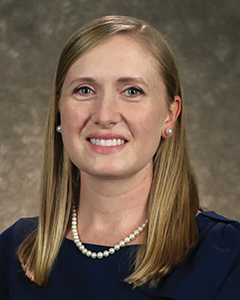
Inflammatory bowel disease (IBD) and irritable bowel syndrome (IBS) are common gastrointestinal (GI) diseases that often get confused. While they can have similar symptoms, they are two distinct conditions.
IBD is a general term for a group of autoimmune conditions that cause the body to attack its own healthy tissues. This results in long periods of inflammation in the digestive system. The most common IBD conditions include Crohn’s disease, ulcerative colitis and microscopic colitis. Over 3 million people in the U.S. suffer from a form of IBD.
IBS is categorized as a brain-gut disorder because the brain and digestive system have a close connection. Many IBS symptoms come from dysfunction in this connection. More common than IBD, IBS affects 25 million-45 million people in the U.S.
It’s important to know how the two conditions differ in symptoms, causes, diagnosis and treatments.
Symptoms of IBD and IBS
If you have concerns or are experiencing symptoms, a gastroenterologist can help determine which condition you may have, offer a treatment plan and suggest helpful resources.
A combination of symptoms can help doctors identify IBS, including:
- Diarrhea and/or constipation
- Painful gas and bloating
- Stomach pain and cramps
- Urgent bowel movements
Most people with IBS feel frequent stomach pain, usually in the lower abdomen. This discomfort is often relieved after a bowel movement.
The American College of Gastroenterology has a one-minute screening quiz online for IBS.
IBD can cause symptoms like IBS, as well as:
- Extreme fatigue
- Eye inflammation
- Malnutrition
- Weight loss
Certain IBD conditions, like Crohn’s disease and ulcerative colitis, can increase the risk of developing colon cancer. If you have symptoms of either, share your concerns with a doctor or gastroenterologist; it could be lifesaving.
Causes of IBD and IBS
There is no definitive cause of IBD or IBS. Many gastroenterologists think IBD arises from a combination of genetics, stress and gut microbiota. Microbiota refers to various bacteria, fungi and other microorganisms living in the digestive tract. Some risk factors for developing IBD can include family history of IBD and a personal history of smoking.
The causes of IBS involve a combination of several factors, including food sensitivities, increased or decreased movement in the digestive tract and imbalances in the brain-gut connection. Researchers are constantly analyzing the causes and treatments of IBS to improve patients’ quality of life.
Diagnosis of IBD and IBS
Diagnosing these conditions is very different. Doctors diagnose IBD through various medical tests, but they’ll diagnose IBS by clinical history. To diagnose IBD, a doctor may request tests, such as:
- Colonoscopy
- Biopsy
- Blood tests
- Stool studies
A biopsy of one’s colon or small bowel can determine the inflammatory process by observing active inflammation, digestive tract scars and progression of the disease.
When diagnosing IBS, doctors will rule out other conditions by reviewing a patient’s:
- Current overall health, including diet and lifestyle
- Family history
- Medical history
Treatments of IBD and IBS
IBD treatment can focus on managing symptoms to improve quality of life and maintaining gut health with medications and colon cancer screenings. Treatment depends on the specific form diagnosed but can include:
- Anti-inflammatory medications
- Biologic medications
- Immune system-regulating medications
- Steroids
- Surgery, which can be curative for UC
Treatment for IBS also focuses on symptom management. It can be managed with medications and lifestyle changes, such as:
- Acupuncture
- Anti-diarrheals
- Dietary adjustments
- Low FODMAP diet
- Probiotics and stool softeners/laxatives
- Referral to dietitian
- Relaxation practices
If you have concerns or are experiencing symptoms, a gastroenterologist can help determine which condition you may have, offer a treatment plan and suggest helpful resources. Connect with a physician.
Related Reading
When Stomach Troubles Turn Serious
IBS: It's Not Your Father's High-Fiber Cereal That Brings Relief



